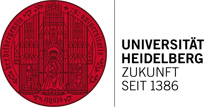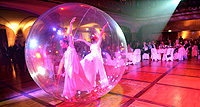Urban Development in the ‘Field Lab’
In January 2015 Heidelberg scientists and non-university partners began working together in a new ‘Field Lab’ to investigate the challenges of modern urban planning. The research project is one of seven similar institutions funded by the state of Baden-Württemberg with a total of seven million euros; their purpose is to act as forums for researchers and stakeholders from industry, politics, administration and associations. Together these parties intend to tackle social challenges and contribute to a sustainable development of urban spaces. To this end, the researchers will take part in operational change processes while their partners are directly involved in the research process.
The ‘Field Laboratory for Sustainable Urban Development in a Knowledge Society’ brings together Heidelberg researchers from the fields of geography, sociology, diaconal studies, gerontology and geoinformatics, experts of the city of Heidelberg and Internationale Bauausstellung (IBA) and other non-university partners. Over the next three years, they will explore the challenges facing urban planners in view of socio-political processes like demographic change, the increasing importance of education and Germany's energy transition. The state of Baden-Württemberg supports the initiative headed by geographers Prof. Dr Ulrike Gerhard and Dr Editha Marquardt with roughly 800,000 EUR in funding.
An ‘Urban Office’ that will be set up for the project is designed to bring together the university, city, IBA and other partners as well as Heidelberg citizens and to focus the various research and practical activities. The cooperation will initially take the form of four subprojects that deal with different aspects of urban development in a knowledge society and tie in with corresponding urban development projects in Heidelberg. Examples include multigenerational housing within the context of demographic change and the development of new ‘knowledge spaces’. The objective is to generate knowledge on urban transformation processes of the present that can act as a model for a sustainable management of urban development. ‘This means that our research is of universal relevance, since the results can be applied to other cities’, explains Prof. Dr Ulrike Gerhard of Heidelberg University's Institute of Geography.
Conceptually the Heidelberg Field Lab belongs to the research fields ‘Sustainability in urban development’ and ‘The city in a knowledge society’. ‘Based on the three pillars of sustainability – ecological, economical, social – we can formulate a number of requirements for a healthy and pleasant living environment in the city of the future’, explains Prof. Gerhard. ‘This concerns living and working conditions and education as well as environmental justice, energy transition and social balance. An important factor in this context is visionary, sustainable construction.’ The researcher believes that the development of conversion sites represents a great challenge as well as a great opportunity. According to Dr Marquardt, cities must also be seen as central sites of transition to a knowledge society. ‘This means that knowledge is increasingly becoming an essential resource for urban change.’ Both scientists are convinced that involving local citizens in this project is of vital importance for managing such processes.

